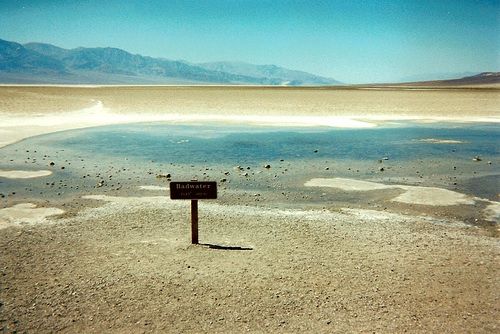World Bank: Water Situation in Gaza 'Alarming'
Published on by Water Network Research, Official research team of The Water Network in Social
People will need water, already scarce in the Middle East and North Africa (MENA), even more desperately if temperatures rise because of climate change, said the World Bank in a report on the situation in Gaza.
 In Palestine, water resources are critically scarce, and the situation in Gaza is alarming, it said.
In Palestine, water resources are critically scarce, and the situation in Gaza is alarming, it said.
Adnan Ghosheh, senior water and sanitation specialist, remembers a time not so long ago when everyone in Gaza could drink water from their tap.
That was in the late 1990s, but so much water has been pumped out of the natural aquifer underneath Gaza since then that seawater has seeped in, making it too salty to drink.
These and other factors mean that only 10% of Gaza’s population has access to safe drinking water, compared to 90% in the West Bank or about 85% in MENA in general.
Q. What danger does the drop in the level of the aquifer pose?
Raw or poorly treated wastewater, which comes from densely populated areas and refugee camps in Gaza, infiltrates the aquifer or goes to the Mediterranean. As a result, you have a shortage of water coupled with high demand, given the high growth of population now close to two-million.
So, there are issues both with the quality of water and the quantity of water, both are making access to improved drinking water very low. As such, people in Gaza are not able to use the water coming into their houses for drinking; they use it for household ends, but for drinking, they have to rely on trucks. There are some 150 operators who provide some kind of desalinated water that has been filtered to make it acceptable for drinking and for cooking. It’s more expensive and not an improved source of water, according to our definitions of water clean enough to drink.
Q. What other sources of water can possibly be considered?
In the past, Israel used to deliver good quantities of water, but the demand has increased with the population growth, and the volume of freshwater provided by Israel under the 1993 Oslo Accords falls far short of what it needs now. So the quantities from the aquifer and Israel are simply not sufficient for Gaza, although this issue had been raised by numerous studies. There were ideas to build a desalination plant, to import water from Egypt or from Israel—transboundary water—and now the Palestinian Water Authority (PWA) is pushing for a central desalination plan with the support of the World Bank. Strengthening the capacity in the Palestinian water institutions to sustainably manage the sector and build such complex infrastructure is being taken into consideration as part of another Bank’s project.
At the end of the day, people need water. We, at the World Bank, do development, however, our work in Gaza has also a humanitarian nature because water is a basic need.
Q. How quickly has this water crisis happened?
The issue became more acute about 15 years ago, when water supply and availability quickly deteriorated. This water crisis has already led inhabitants to leave Gaza. If we start implementing the measures to secure the water supply and improve water management, the aquifer would clean and replenish itself. But, if by the year 2020, those measures are not in place—if the 55 m3 of water a year from the desalination plant is not coming to replace the water being taken out, if the waste water plants are not built—we will basically have an irreversible process.
Read full interview: International Middle East Media Center
Media
Taxonomy
- Crisis
- Water Access
- Water Resources
- Water Management
- Resource Mobilisation